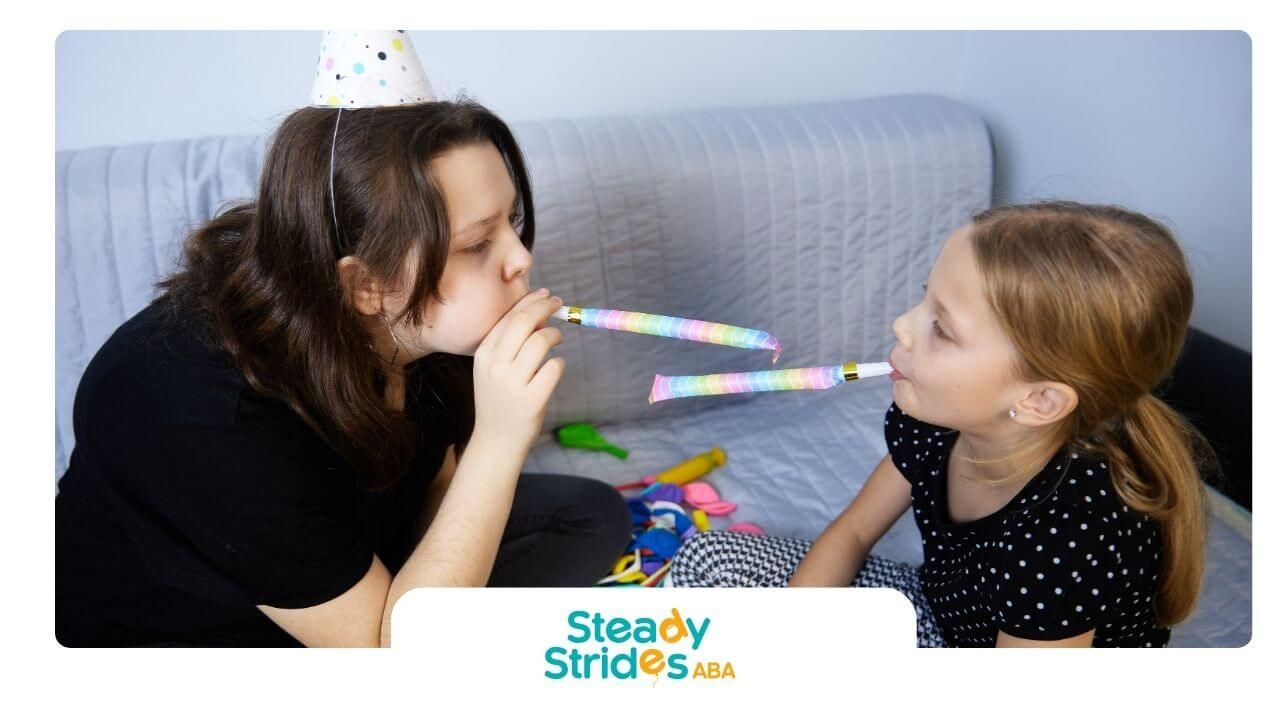For many families, pets are more than just animals; they are members of the family who bring joy, companionship, and comfort. This is especially true in the lives of children with autism, where pets can play a unique and beneficial role. Research and anecdotal evidence suggest that pets can significantly impact autistic children's social, emotional, and cognitive development. This blog post explores the joys and benefits of pets for autistic children, highlighting how these animal companions can make a profound difference in their lives.
Understanding Autism Spectrum Disorder
Autism Spectrum Disorder (ASD) is a developmental condition characterized by its influence on communication and behavioral patterns. The term "spectrum" underscores the diverse array of symptoms and their intensity across different individuals, presenting a unique set of challenges and strengths. Commonly, individuals with autism navigate difficulties in social interactions, exhibit repetitive behaviors, and may develop intense, focused interests in specific topics or activities.
The Role of Pets in the Lives of Autistic Children
In the context of autism, pets emerge as unconditionally supportive and non-judgmental companions, offering a steadfast presence that fosters a sense of security and routine. This aspect is particularly beneficial for children who thrive on predictability and consistency in their daily lives. The subtle yet impactful presence of a pet can provide a comforting anchor, facilitating a nurturing environment conducive to growth and development.
Emotional Benefits
The capacity of pets to offer emotional support is unparalleled, particularly for autistic children. These animals can become trusted confidants, sources of solace during times of stress, and silent, understanding allies. The bond that blossoms between a child and a pet can significantly augment the child’s ability to navigate emotions and cultivate empathy, providing a foundational support system that nurtures emotional intelligence.
Social Skills Development
Engagement with pets can also serve as a catalyst for the development of social skills in autistic children. These animals act as natural facilitators of social interaction, easing the process of connecting with others. For instance, the simple act of walking a dog can create opportunities for engaging with neighbors, fostering a sense of community and belonging. Similarly, the responsibilities associated with pet care—feeding, grooming, and playing—can encourage a child to adopt a more active role within the family, promoting a sense of responsibility and cooperative behavior.
Sensory Play and Stimulation
The multisensory experiences pets provide can have a calming and therapeutic effect on autistic children. The varied textures of an animal's fur, the comforting sound of a cat's purr, or the mesmerizing visual of fish gliding through water can offer rich sensory play opportunities. Such interactions can serve as a soothing mechanism, helping children manage sensory sensitivities and offering a unique form of sensory stimulation that is both engaging and comforting.
Promoting Physical Activity
Physical activity is another significant benefit, particularly with pets like dogs that necessitate regular exercise. Engaging in play and outdoor activities with a pet can boost a child’s physical health, mood, and overall well-being, offering a fun and motivating way to incorporate exercise into daily routines.
Choosing the Right Pet
Selecting a pet requires careful consideration of the child's specific needs, family dynamics, and the lifestyle compatibility with the pet in question. Important factors include:
- Allergies: Ensuring compatibility with family members’ health conditions.
- Temperament: Choosing animals known for their calm and gentle nature, conducive to a positive interaction with the child.
- Care Requirements: Assessing the family's capacity to meet the care needs of the pet, including time, resources, and the physical environment.
Ideal Pets for Autistic Children
Though the suitability of a pet largely depends on individual preferences and conditions, some pets are universally recognized for their compatibility with autistic children:
- Dogs: Particularly breeds known for their affectionate and gentle demeanor, such as Golden Retrievers and Labradors, can provide invaluable companionship.
- Cats: Offer a lower-maintenance alternative, with their independent nature and the soothing sound of their purr providing a source of comfort.
- Small Animals: Rabbits, guinea pigs, and hamsters are excellent for children who prefer smaller, less intimidating companions.
- Fish: The serene beauty of an aquarium can offer visual stimulation and a calming presence, with the care of fish introducing a therapeutic routine for the child.
Real-Life Success Stories
The narrative of pets positively impacting the lives of autistic children is one rich with heartwarming and transformative accounts. From dogs who intuitively intervene during a child's self-harming episodes to cats who provide unwavering companionship through the night, these stories vividly illustrate the deep and meaningful connections that can form, highlighting the unique bond between these children and their animal companions.
Key Takeaway
Introducing a pet into the household of a child with autism is a decision of profound significance. The benefits, however, are boundless, offering companionship, emotional support, and developmental opportunities unmatched by other forms of therapy or intervention. Pets unlock pathways to emotional and social growth, furnish a comforting presence, and extend unconditional love and support.
At
Steady Strides ABA, we deeply understand the significant impact pets can have on the lives of children with autism. Our commitment to providing comprehensive support extends beyond mere therapy services, recognizing the immeasurable joy, companionship, and therapeutic benefits pets can offer. As we continue to support families and children on their unique journeys, we advocate for the exploration of pet companionship as a valuable step toward fostering happiness, growth, and fulfillment in the lives of children with autism.













